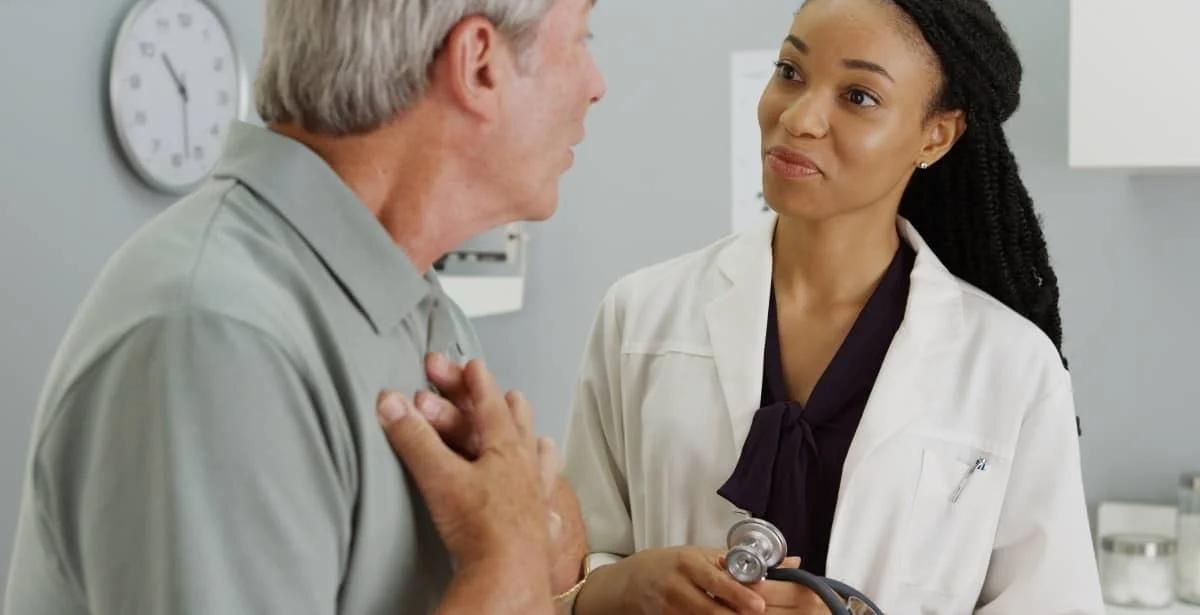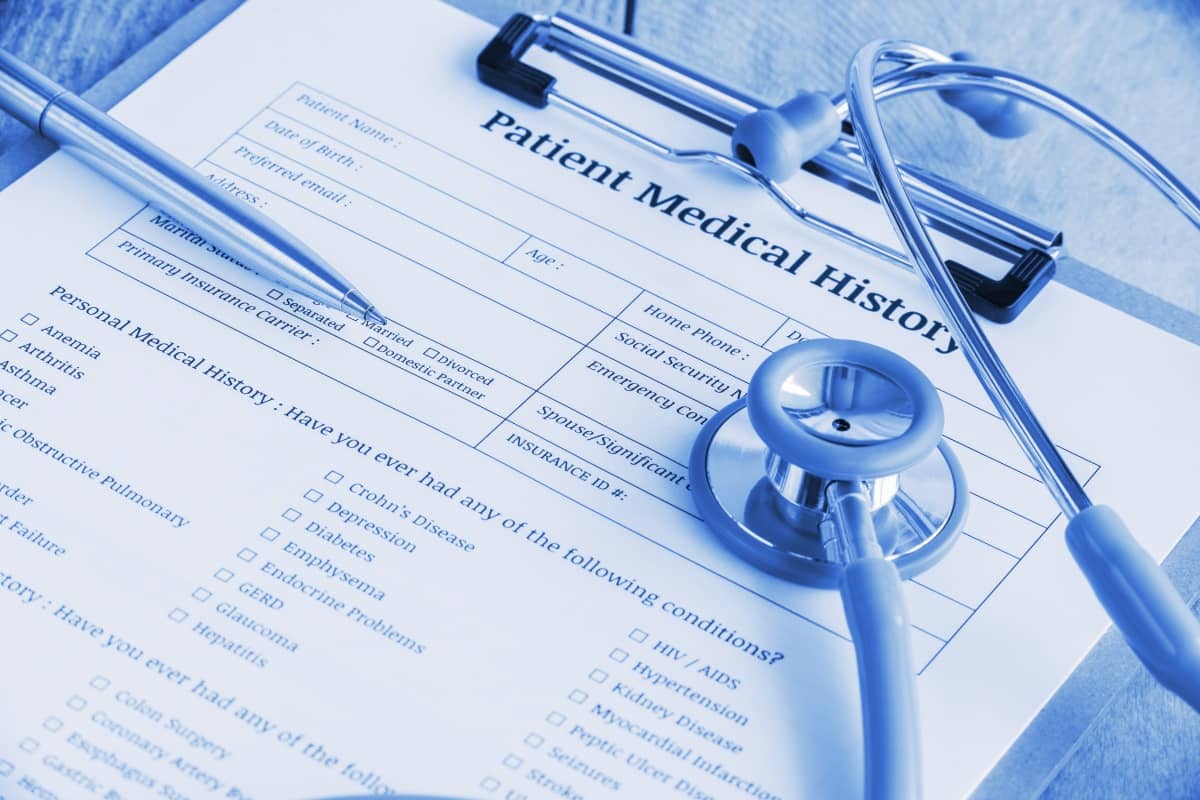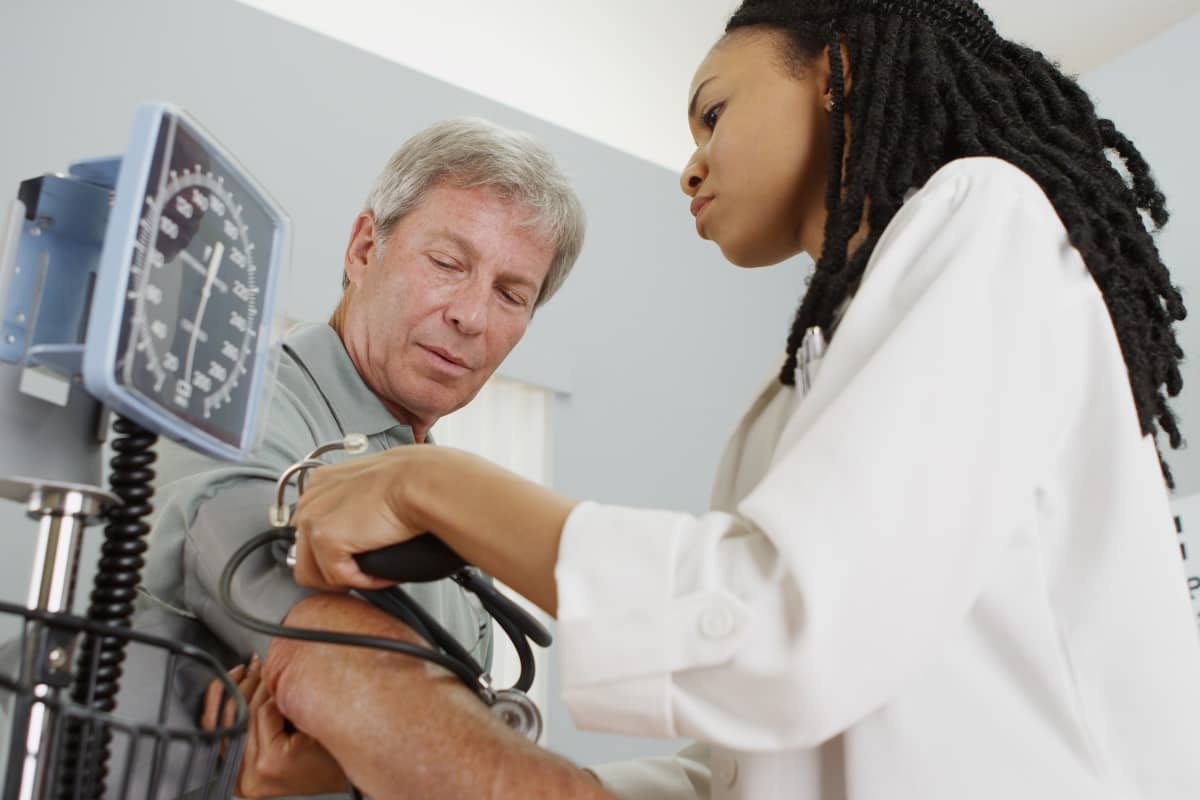An Extensive Guide to Performing an Advanced Health Assessment

Advanced health assessment is central to nurse practitioner (NP) practice. As autonomous, independent health care providers, NPs perform health assessments to evaluate patient needs and determine the best treatments.
You’ll build the competencies needed for advanced health assessment as a student in the online Master of Science in Nursing (MSN) – Nurse Practitioner program at Wilkes University.
Use this blog to learn the importance of advanced health assessment and what to expect from Wilkes’ course for MSN – NP students. Plus, explore the latest best practices and supplemental learning resources.
What is Advanced Health Assessment?
Advanced health assessment is a systematic process for evaluating the physical, mental and functional aspects of patient health. Mastering this diagnostic tool is vital to NP practice because health assessment forms the basis of patient care.
The NP uses objective and subjective information collected through advanced health assessment to:
- Determine the patient’s health status
- Make an accurate diagnosis
- Understand the patient’s health risks
- Support their clinical decision-making
By performing precise and comprehensive health assessments, the NP can obtain the information needed to improve patient care.
An advanced health assessment includes a health history and a physical exam.
Health History
Most advanced health assessments begin by taking the patient’s health history. The NP obtains a health history by reviewing medical records and interviewing the patient or, if necessary, the patient’s caregiver.
A health history documents the patient’s health background. According to the National Institutes of Health (NIH), a personal health history can include information about:
- Allergies
- Illnesses
- Surgeries
- Immunizations
- Results of physical exams and tests
- Medications
- Health habits, such as diet and exercise
- Family history of disease
A health history may also cover biopsychosocial, economic, environmental, family, military, travel or occupational information.
Physical Exam
The next step of health assessment is the physical exam.
The physical exam enables the NP to identify the physical signs and symptoms of a medical condition. Based on their findings, the NP can make a differential diagnosis or decide on the additional steps needed to find one.
Each body system has a distinct physical exam. The NP will often examine the whole body. If there is a specific patient problem, the NP may tailor the physical exam to the related body systems.
Physical exams also help the NP assess the patient’s mental and functional health. The NP can identify physical disorders caused or accompanied by mental disorders and the patient’s capacity to participate in everyday activities.

What is Wilkes’ Advanced Health Assessment Course?
Advanced health assessment is part of the advanced practice nurse practitioner (APRN) core curriculum. The APRN core also includes separate courses in advanced physiology/pathophysiology and advanced pharmacology.
Every NP education program has a required course in advanced health assessment. At Wilkes, it’s called NSG 500: Advanced Health Assessment.
The course presents an overview of the full and comprehensive health assessment of patients across the life span. It emphasizes multiple aspects of advanced health assessment, including physical, functional and mental health assessment along with transcultural variations.
It examines the assessment of all human systems, advanced diagnostic techniques, concepts and approaches. After completing the course, you’ll be prepared to:
- Conduct a comprehensive health history and physical exam on patients across the life span.
- Organize the physical exam in a logical sequence to obtain accurate data while protecting the client from fatigue and discomfort.
- Interact with the patients in a responsive and sustaining manner while engaged in assessment, data collection, interpretation and communication.
- Expand data collection skills appropriate to advanced practice nursing.
- Administer exam techniques for functional assessment.
- Discuss an awareness of transcultural variations related to health assessment.
- Utilize the major tests of cognitive assessment.
Course Structure
Like all courses in the online MSN – NP program, Advanced Health Assessment features fully online coursework. You can access the coursework for each module in Wilkes’ virtual learning environment 24 hours a day.
Throughout the course, you’ll practice your communication, physical assessment and documentation skills using a simulation platform called Shadow Health.
Wilkes’ MSN – NP candidates also participate in an onsite residency. During the two-day experience, you’ll demonstrate your advanced health assessment skills and complete competency testing.
Course Success Tips
The breadth of knowledge and skills covered makes Advanced Health Assessment an intensive course. But with preparation and perseverance, you’ll gain the competencies to assess patients of all ages effectively.
One tip for success in the course is to refresh your knowledge of anatomy and physiology.
Wilkes’ course provides an overview of the body systems. But you’ll want to review each system before the course begins.
Understanding all of the normal body functions will help you quickly identify the signs, symptoms and causes of disease during a health assessment.
Another tip for success is to practice taking health histories and performing physical exams.
You’ll participate in simulated health assessments in your coursework. Practicing with friends or family will help you remember the key questions, typical observations and abnormal findings.
What Are Updates to Advanced Health Assessment Approaches?
Approaches to advanced health assessment continue to evolve with medicine and nursing science. Wilkes’ course is based on the latest information and techniques so that you’re prepared to deliver quality care as an NP.
Here are a few examples of how new evidence has changed health assessment best practices to improve patient outcomes.
Integration of the Nine Dimensions of Wellness
According to the book “Evidence-Based Physical Examination,” the increasing complexity of healthcare demands a comprehensive approach to health assessment. That means addressing the many factors that affect health and well-being.
The book’s editors, who are three doctorally prepared NPs, recommend that health care providers incorporate into every physical exam a well-being assessment based on the nine dimensions of wellness:
- Physical
- Emotional
- Financial
- Intellectual
- Career
- Social
- Creative
- Environmental
- Spiritual
It’s important to assess all of these factors because they’re interrelated. By taking all nine dimensions into account, health care providers can ensure a complete well-being assessment that leads to accurate conclusions and effective management.

Expansion of Hypertension Screening
In April 2021, the U.S. Preventive Services Task Force issued new guidance on hypertension screening.
The Task Force now recommends expanding screening to all individuals ages 18 and over. It says that most people are unaware of their potential risk for a heart attack or stroke without hypertension screening.
The guidance also includes new best practices for performing hypertension assessments. Healthcare providers should screen for high blood pressure during office visits using a blood pressure cuff on the upper arm.
Opioid Use Disorder Screening Tools
Deaths related to opioid use continue to rise. Between 2017 and 2018, the rate of opioid overdose deaths increased by 10%.
Fortunately, nurses can help alleviate the opioid overdose crisis. According to an article in the American Journal of Nursing, nurses are qualified to reduce the prevalence of opioid use disorder (OUD) by advocating for OUD screening tools and the appropriate treatment.
The article identifies three of the most effective screening tools, which are:
- Kreek-McHugh-Schluger-Kellogg (KMSK) Questionnaire
- Drug Abuse Screening Test (DAST-10)
- Diagnostic and Statistical Manual of Mental Disorders, Fifth Edition, OUD Diagnostic Criteria
NPs can improve patient outcomes by incorporating these screening tools into advanced health assessments to evaluate patients for OUD.
Learn More about Advanced Health Assessment
Wilkes’ Advanced Health Assessment course will equip you with a comprehensive understanding of health assessment for advanced practice nursing.
Ball J., Dains, J., Flynn, J., Solomon, B., Stewart, R. (2019). Seidel’s Guide to Physical Examination (9th ed). New York, NY: Elsevier
Written by two APRNs and three physicians, this latest edition provides an interprofessional, patient-centered lifespan approach to physical examination and health assessment. Each chapter is organized into four sections — Anatomy and Physiology, Review of Related History, Examination and Findings, and Abnormalities — with lifespan content integrated into each area.
You can supplement your learning with the following suggested reading materials.
Advanced Health Assessment for Older Adults
*Boltz M., Capezuti E., Zwicker D., & Fulmer T. (Eds). (2020). Evidence-Based Geriatric Nursing Protocols for Best Practice (6th ed.). New York, NY: Springer Publishing Company
This book describes evidence-based guidelines for improving quality and outcomes for older adults, including advanced health assessment principles.
Advanced Health Assessment Simulations
*Rhoads, J. and Wiggins Peterson S. (2021). Navigate 2 Premier Access with Kognito Simulations for Advanced Health Assessment and Diagnostic Reasoning (4th ed.). Burlington, MA: Jones and Bartlett Learning
Learn how to perform advanced health assessments on a range of virtual clients and body systems. This digital publication features simulations and videos, plus an e-book and interactive lectures.
Advanced Health Assessment in Primary Care
Myrick K. and Karosas L. (Eds). (2019). Advanced Health Assessment and Differential Diagnosis: Essentials for Clinical Practice. New York, NY: Springer Publishing Company
Explore the latest techniques for advanced health assessment for primary care across the life span. This book provides an overview of anatomy and physiology for each body system and reviews normal and abnormal findings.
Dains J., Baumann L. and Scheibel P. (2018). Advanced Health Assessment & Clinical Diagnosis in Primary Care (6th ed). New York, NY: Elsevier
Go beyond basic history and physical exam skills by focusing on the diagnostic reasoning process. This book will teach you how to accurately diagnose the majority of patients in today's primary care settings by following assessment guidelines for a specific complaint.
Titles marked with an asterisk (*) earned a 2020 Book Award from the American Journal of Nursing.
Prepare to Excel at Advanced Health Assessment
Completing Wilkes’ Advanced Health Assessment course will move you another step closer to becoming an NP equipped to provide quality health care.
If you’re a current Wilkes’ student looking for additional support, please contact your student advisor. If you’re not yet a Wilkes’ student and would like to learn more about our programs, you can get in touch with an enrollment advisor.




